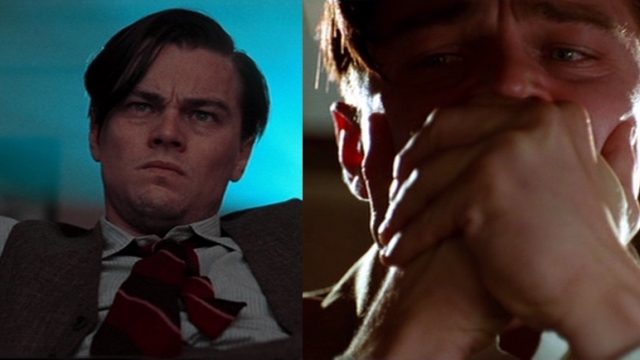I certainly chose an interesting time to get around to watching Martin Scorsese’s Howard Hughes biopic, The Aviator. Sitting on the couch where I have watched dozens of movies in the last three months because I can’t do much else in the middle of a pandemic, I hit “play” and listened to Howard Hughes’ mother spell the word “quarantine.” She cautions her son about cholera and tells him, “You are not safe,” and that sets the tone for the whole movie. It’s a thesis statement we can all relate to right now because germs are invisible monsters that we cannot punch, we cannot pay off, we cannot argue with. They are immune to our attempts to control them, and from the moment we see Howard Hughes barking orders on the set of Hell’s Angels, it’s clear that he is a man who must be in control. Yet he cannot control his own OCD, and so The Aviator becomes a portrayal of simultaneous power and debilitation. It’s strange to watch this movie now and reconcile our disdain for billionaires with our sympathy for his mental illness.
It helps that Leonardo DiCaprio gives one of the best performances of his career. While he does do a Voice — the true signifier of Great Acting — and he’s playing a larger-than-life, charismatic figure, it’s a very lived-in and natural performance. It’s a real feat to come off as charming instead of despicable when you’re casually throwing around millions of dollars to add two more cameras to your fleet of twenty-four. He exudes such confidence in his wealth and power outwardly, but he struggles with this disease inwardly. He never speaks about it or gives it a name — I’m not sure it even had a name at the time — but he communicates it all with his eyes. We can see it in his pointed glance at the peas that a man just touched, thus contaminating the entire plate, including the juicy steak he’d just been enjoying. We can see it in the shaking of his hand as he fights to touch a bathroom doorknob. The camera often puts the audience in Hughes’ POV as well, allowing his focus to become our focus.
DiCaprio’s performance reflects the content of the script, which constantly shows Hughes seizing or losing control in a variety of ways. He tries to control the Katherine Hepburn-Spencer Tracy narrative by paying off a reporter to keep their affair a secret. He seizes control of a hearing by turning questions back on Senator Brewster. He controls poor Professor Fitz by not only drafting him into meteorological servitude by doubling his salary but also making him pose as a mathematician to measure cleavage on the fly. With all his money, he can do whatever he wants, but some things don’t listen to money, like the XF-11 that crashes and nearly kills him (tellingly, Hughes wants people to focus on the two hours it was in the air instead) or the OCD that eventually drives him into complete self-isolation to the point of peeing in bottles. He recites instructions for contactless delivery for milk, and it’s absolutely tragic.
Paranoia feeds into this cycle, as it’s a bit ambiguous why he bugs Ava Gardner’s home (don’t worry, he doesn’t listen to her phone calls, he just reads the transcripts). This is a form of control that’s in line with his conscious behavior, yet it’s far enough over the line that it could be a result of his unconscious behavior. It becomes even more likely that it’s his compulsion seeking control when he starts hallucinating people looking for him and begins losing his grip on reality. It’s terrifying that a man who can throw millions of dollars around like it’s nothing can’t trust his own senses.
The final scene hammers home the whole story, and Martin Scorsese knows DiCaprio can handle that burden. The phrase “the way of the future” spills out of his mouth repeatedly, which, like the paranoia, is absolutely in line with what Hughes believes but is being co-opted by his disease. With every repetition, you can feel DiCaprio fighting to reclaim his words, to regain control by slowing them down so that he’s saying them himself. But, like money itself, a thing with no intrinsic value but what we place on it, that control is just an illusion.


